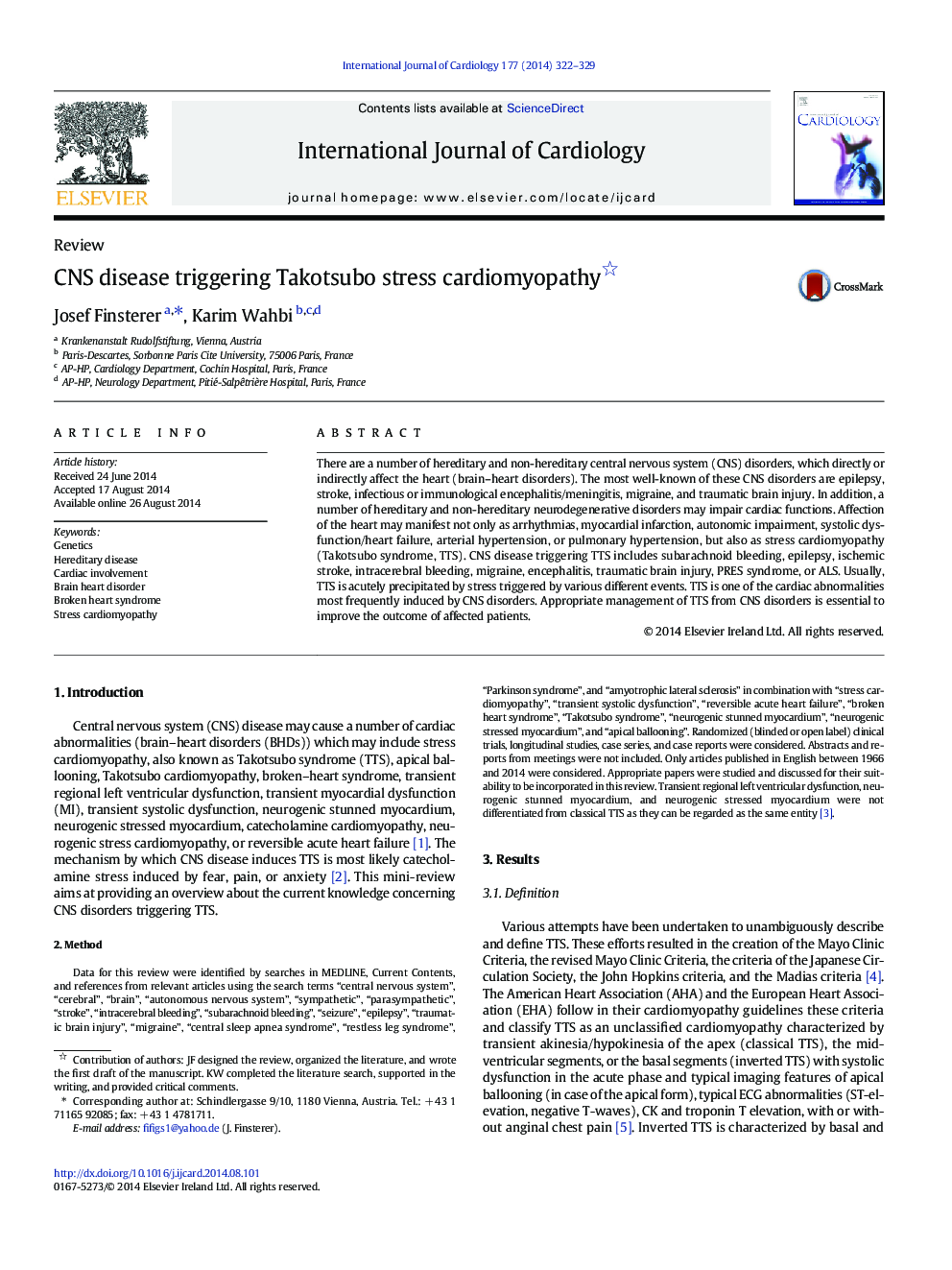| Article ID | Journal | Published Year | Pages | File Type |
|---|---|---|---|---|
| 5970386 | International Journal of Cardiology | 2014 | 8 Pages |
There are a number of hereditary and non-hereditary central nervous system (CNS) disorders, which directly or indirectly affect the heart (brain-heart disorders). The most well-known of these CNS disorders are epilepsy, stroke, infectious or immunological encephalitis/meningitis, migraine, and traumatic brain injury. In addition, a number of hereditary and non-hereditary neurodegenerative disorders may impair cardiac functions. Affection of the heart may manifest not only as arrhythmias, myocardial infarction, autonomic impairment, systolic dysfunction/heart failure, arterial hypertension, or pulmonary hypertension, but also as stress cardiomyopathy (Takotsubo syndrome, TTS). CNS disease triggering TTS includes subarachnoid bleeding, epilepsy, ischemic stroke, intracerebral bleeding, migraine, encephalitis, traumatic brain injury, PRES syndrome, or ALS. Usually, TTS is acutely precipitated by stress triggered by various different events. TTS is one of the cardiac abnormalities most frequently induced by CNS disorders. Appropriate management of TTS from CNS disorders is essential to improve the outcome of affected patients.
